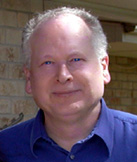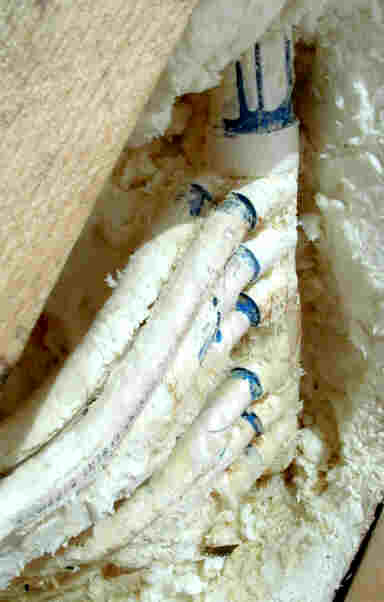|


James Arjuna, President
The Spa Spaspecialist inc.
Copyright
1997,1998, 1999, 2000,2001, 2002,
2003
The Spa Specialist Inc.
|
  

|
Spa Tips
Filtering Economically
The Spa Specialist Inc.
"Promoting ethics in the spa industry."
|
People all across the country are enjoying the high quality Spa
Specialist hot tubs and spas. You can too! We are the
internet spa and hot tub store. We even have spas in Hawaii and
Scotland! We ship and delivery to your home.
WHY HAVEN
SPAS? (Click
on the smiley faces to learn more. )
The
value! It's the spa's quality of engineering and reliability ,
the spa shell and quality cabinet construction, the 1/2
inch clear redwood skirt and composite skirts. No one has the
therapy as in our spas. Our remote service people take care of
any problems. Lowest prices for the highest level of quality and
reliability of any hot tub or spa. One of the most thermally efficient ,
the spa shell and quality cabinet construction, the 1/2
inch clear redwood skirt and composite skirts. No one has the
therapy as in our spas. Our remote service people take care of
any problems. Lowest prices for the highest level of quality and
reliability of any hot tub or spa. One of the most thermally efficient spas in the world. spas in the world.
We
recommend the Spa Buyer's Questions
and Answers as the best place to
start. The hot tubs prices are linked on that page. Thank you for
visiting
our site! Email us with hot tub questions as the best place to
start. The hot tubs prices are linked on that page. Thank you for
visiting
our site! Email us with hot tub questions or visit our Message Forum
or visit our Message Forum 

|
The
Spa Specialist, 12910 N. Zuni St, Westminster, CO 80234,
(303)-920-1495 Toll Free: 888-478-2224
How Haven Spas Filter Extremely
Well and Still Run So Economically Compared to Full Foam
Copyright The Spa Specialist Inc.2003
Spas are really nice things to have, but
if
they are not designed properly, they can cost you a lot to own.
There
are many aspects to these costs and some are hidden by the spa
manufacturers
by they way the spas are designed. In the last article on filtering
myths,
I went over in detail the myth of 100% filtering and the advertising
used
to sell it as if it was a good design. If you have a poorly
designed
spa with a tiny circulation pump on it, it will cost more in chemicals
to
keep the water clear and sanitary. That is fact. It either
costs
in chemicals and supplies, in water changes, or in wasted time.
If a spa uses less chemicals to keep the water clean, then it costs
less in both chemicals and in water changes. If your water is
using more shock, chlorine and has to be drained and filled more often
because of the total dissolved solids. This is from too many
chemicals. Then it becomes more expensive just because of the
cost to heat up the water
and the cost of the water and the cost of chemicals. In a spa
that
filters correctly you use a lot less chemicals, a lot less time and a
lot
less water. If your spa is constantly clouding up and all the
chemical
tests are correct, then you need to filter more or filter better.
A
spa that filters well uses less products. It can go longer
between
drain and refill and the extra costs of heating cold water up to
temperature.
Also a spa that runs correctly to the ANSI standard with correct
filtering
per day has water that is safe! You will not be soaking in dead
skin
tissue, mucus, feculence, sweat, and hair, like the cheaply made spas
that
barely filter.
It is important to note that the human eye cannot resolve (see) smaller
than about 1/1000 of an inch with perfect vision. Most folks
resolve about 3 to 4/1000 of an inch maximum. 20 microns is
20/1000 of a millimeter. The filters remove most of the debris
from 10 microns on up if you
use them properly. More on filters later.
The point of this is the water can look clear to the naked eye and
still have many things floating in it that you cannot see. When
people talk about "crystal clear" water, you need to take a gallon jug
and put some
filtered tap water in one and a gallon of spa water in the other and
compare
the clarity that way. That crystal clear spa water may have a
gray
look side by side with pure water.
The secret to getting large volumes of water filtered and qualty of
water, is to conserve the energy from the filtering pump and transfer
the heat into the spa water.
At the same time while the pump is running it creates a 100%
thermal
heat barrier on all the pipes, and the vessel of the spa. There
is
literally zero heat loss from the spa water, except out the top where
the
cover is. (Use a
thermal blanket with a spa cover is the smartest thing a person can
do in winter to supplement the hard cover.)
Normally during the entire filter cycle the heater never comes on,
because the spa is heated and fully insulated by the kinetic and
thermal energy
of the pump.
If you run our largest pump on low speed, it can run for 7 hours
to equal the same kilowatt hours as one hour of electric heat. In
most spas the heater and the pump is used to heat the water. The
5.5
KW or 4 KW heaters are the most wasteful part of spa operation.
When it is extremely cold, I advise my customers to run the filtering
24 hours per day and they can save up to 20% of the energy and have
extremely well filtered and ozonated water. This brings the
thermally closed
DAIT spa with a full size 5 HP pump to about 2/3 the cost
of
a normal full foam spa with two 2.5 HP pumps and in the coldest winter
months.
If a full foam spa costs $100 then the DAIT will cost $66.
In the Highest Quality Super Custom models we use a very special pump
for filtering and heating. It is a modern engineering "marvel"
It moves a tremendous amount of water with an extremely low
amperage. It is designed with large cutting impeller so that it
has a high volume and very low pressure. In filtering the
pressure is not needed but the total gallons is very important.
In the SCF model we are getting reports of extremely low energy
costs because this pump creates a 100% thermal warm air barrier for a
lot less than the large pump does and it does it 24 hours a day.
It filters from 35,000 to 50,000 gallons of water per day and the
ozone system on this spa is so effective that the use of chemicals is
absolutely minimized. The reports from customers on this spa are
simply a reflection of the hard work in the design and production of
this masterpiece of spa engineering. While I set back and listen
to the competition tell me that "it can't work". The customers
testify that it does work, extremely well. The SC spa owners are
totally spoiled. If a standard full foam spa costs $100 then the
DAIT SCF will cost $50 and still filter 10 times the water of
the tiny circ pump spas that tout 24 hour filtering at 3 to 7 gallons
per
minute.
In a full foam spa, the problem is they are relying on normally a
softer foam that has an R value of 1 or 2 per inch. and saying
that it is
the "BEST". Take a look at this picture below. I want you
to
look where the manifold is in relation to the outer wall of the spa.
The other side of the manifold is directly opposite this one
pointing in the
other direction. The water comes up directly from the jet pump
and
is pump through this area while the spa is used and during the set
filter
cycles on pump one. In this photo you can see that this is
similar
to a radiator with a lot of exposed pipes very close to the outside of
the
cabinet. You can see that this spa has a huge volume of water passing
about
2 inches from the outside world, and is covered in about R-4 worth of
foam.

copyright 2003 The Spa Specialist Inc.
This may not be used by any commercial company selling spas or building
spas. It can only be downloaded by individual consumers for
reference only.
|
When you have a full foam spa the foam
stops
any possible warm air from encircling the water pipes and tubing.
In
a DAIT
equipped spa the outer wall is insulated and inside the spa cabinet is
warm
air. As long as the air is warmer than the water, no matter how
far
or how near the pipes are to the outside cold, they are kept warmer
than
the water and 100% insulated. This stops all heat loss out of all
the pipes as well as all the heat loss out of the spa vessel, except on
the bottom and that we simply foam in. Even if a pipe is
1/4
inch from the outside wall, as long as the air is warmer than the
water,
their is no heat loss from the plumbing pipes. If the temperature
drops to say 85 degrees, then it is still better insulated than in this
spa shown here, because that is only a 19 degree temperature
differential,
If you have R-4 and a 84 degree temperature differential, the
heat
loss is four times the KWH losses at this part of the cabinet.
When
the full foam salesman says that their spas have R-45 insulation, that
is
in the thickest part of the spa near the bottom measured at a 45 degree
angle
to the vessel. It is a joke, only the joke is on the spa buyers
who
have to pay for the extra heat losses.
This photo also show you how difficult it is to fix a full foam spa.
You have to dig out all the foam to expose the leaks, a very
labor consuming
job.
Here is a very important point to all of this. Water is 1341
times more expensive to heat than air, so any direct water heat loss is
very expensive compared to losing heat from air. It takes much
less energy to produce enough heat to warm the inside of a spa cabinet,
which is normally less
than 20 CU feet of open space. Since we must filter to have good water,
and while we filter we have a 100% zero heat loss out the water vessel
and
out the pipes, this is the most energy efficient way to use the pump
for
both filtering and for insulation.
If we are using a 2 speed pump with 860 watts of low speed heat, this
will warm up the spa water while it filters. If you warm up 400
gallons
of water two degrees, that is the equivalent to 2.3 Kilowatt hours of
electric heat or 6.67 hours of pump heat. That means that in 8
hours of running the spa gains 2.3 kilowatt hours of energy minimum (it
is actually much
more, but I am using a conservative model) stored in the vessel.
This is a "heat battery effect". Now when the pump is not
running, between filter cycles, we keep the inside of the cabinet warm
with the heat radiating and conducting out from the spa vessel if
the water has gained 2.3
KWH then we have a battery of heat to use, before the electric heater
will
ever come on. This gives another 6.67 hours of 100 % insulation.
8 hours plus 6.67 hours = 14.6 hours total per day. If you
increase
the filtering to 12 hours, you gain another 3.34 hours of "heat battery
effect" in the spa water and that gives 12 plus 10 hours or 22 hours of
100% insulation energy. Keep in mind that the air will be
slightly
cooler in between the filter cycles so the effective R value will drop
to
about R-40. In the latest versions we restrict the heat loss
tremendously
out side the cabinet by using a total of 7 layers of air barrier
insulation.
Foam, air, foil bubble, air, foil faced foam board, air, plastic,
air,
wood. That is the insulation "sandwich" we now use on the DAIT
spas.
If it is warmer outside we have found that the spas are used less
in
summer so they need less filtering. We drop down to 12,000
gallons
of filtering and 4 hours total time in a standard DAIT spa with two
speed
pumps, using low speed for filtering.
The DAIT spas are so thermally efficient that we put in cooling for the
times when the air is too hot for the pumps and in summer we change the
mode to cool more. We retain more heat in winter and let off heat
in summer. That is why it is called the Dynamic Automatic
Insulation Technology; DAIT. With this system we keep from
overheating the spa water in summer as well as keeping the spa water
fully insulated in winter. It is
the most advanced thermodynamics used in spas today.
In a full foam spa there is another problem. This is a problem
that causes the pumps to burn out more quickly and a tremendous amount
of heat loss from the area where the equipment is kept. In a
standard full
foam spa all of the pipes are buried in foam, eliminating any heat
barrier
insulation, and in the front of the spa is a non-insulated box, called
the
equipment compartment. The equipment compartment is like the
screened
porch or a built in cooler. When I was young, and I am not any
more,
my family lived in a house that had a "cooler cabinet" in the kitchen.
In
those days people used ice boxes. Real ice boxes with ice inside
the
"fridge". In winter they put vegetables in the cooler cabinet.
The
cooler cabinet was a cabinet that had screened louvered openings to the
outside, just like the equipment compartment on a full foam spa.
When the
equipment is placed in an non-insulted box in the winter with vents in
the
box, while the heater is heating the equipment is in the "cooler".
This
is similar to taking your house furnace and placing it on the front
porch
and bringing all the duct work to it to and from the house. So
while
the heater is heating the forced air, the outside frigid air is cooling
the
ducts from the outside. This is something that could only come
from
Southern California, because they never have to deal with cold. I
still can't believe that after 25 years and more these spas are still
being
sold in Vermont and Canada. I can't believe the level of poor
thermodynamic
engineering is in a standard full foam spa.
I sincerely hope this article has helped you to understand the
difference in full foam vs the most effective insulation for spas
called the DAIT.
The cost for putting in the DAIT system is totally made up for
ten
times over in the life of a Haven Spa.
Thanks;
Jim Arjuna
4-24-2003
|
|




